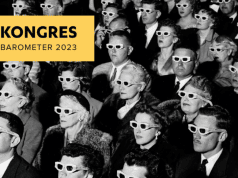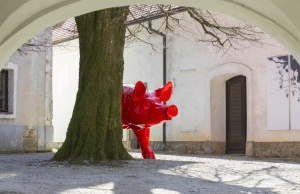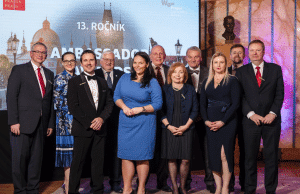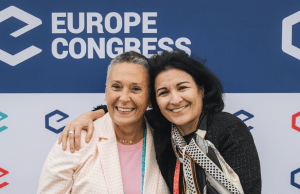Over the recent years several destinations have launched »incentive packages« aimed at congress organisers – partly as a response to their higher price sensitiveness, but even more so to enhance the attractiveness of their city / country in the light of strong international competition.
This question nowadays often appears during an initial discussion with a potential client, giving destinations that offer a »standardised support«, visibly communicated in all the marketing / sales tools, a competitive edge compared to destinations that provide no such solution. My most recent personal experience happened at the IMEX trade show, where the question about city support often entered the top five criteria being considered as important destination attributes by association clients.
There is a clear trend showing more and more cities or countries are approaching this issue and regard municipality / government congress subsidies as a viable marketing investment and a successful tool to reinforce their own image and status. We can also define them as the added value of a destination against others on the marketplace.
A recent press release with Prague in focus renewed my attention to this subject. I was therefore spurred to update myself on different models offered by destinations, two of which are not only geographically close to Ljubljana, but can also be regarded as direct competitors in the region.
The Prague case: In May 2011, the Prague City Council approved an incentive for congress organizers in the form of free public transport for congresses with more than 500 delegates, and the Prague Convention Bureau very much welcomed this step. The incentive support is not intended for private entities (agencies) who realize the events, but for associations, i.e. non-profit organisations which organise the congress.
The Prague City Council expects a visible return on investment, since congresses & meetings, which are ranked among the tourism segments with the highest economic impact, are also essential for the economic development of the city and state. Free public transport is to be approved only for congresses with more than 500 participants, with at least 20% of them being from abroad and spending a minimum of 2 nights in Prague.
This step – the City’s symbolic gesture of support to larger conferences, is nevertheless groundbreaking, as previously there was almost no system of support to them, while in cities around the world far greater incentives are provided as a standard. Being aware that congress subsidies stand more and more prominently among the destination selection criteria, the conclusion was that the lack of local support is one of the reasons for seeing Prague drop in the ICCA world congress destinations ranking from the 8th position in 2006 to the 19th position in 2010. Preparations of transparent rules for obtaining city funds to further support conference organisers (welcome receptions, promotional materials, partial costs of the bid process) are underway.
The Salzburg case: As clearly published on their website, Tourismus Salzburg GmbH / Salzburg Congress grants subsidies on behalf of the city of Salzburg, supporting both domestic and foreign events. The subsidies are offered to organisers of scientific events (associations), travel agencies and PCOs with the aim to attract them to Salzburg Congress (city-owned congress centre). To qualify, events must fulfil the following criteria: have at least 250 international participants staying at least 2 nights in Salzburg hotels in the months of January, February, March, July, August or December.
The City and Region of Salzburg invite organisers and participants of scientific conventions to a reception at the magnificent, historic prince-bishopric ‘Residenz’, where guests are welcomed by an official from the municipal or regional government prior to a chamber music concert. This is an elegant gesture of hospitality towards delegates and an added value to organisers.
The Graz case: The Graz Tourist Association offers a financial support for conventions and meetings in Graz that correspond to a set of precisely defined criteria.
The financial support amounts from 2 to maximum 7,5% of the actual hotel turnover. For 5- and 4-star hotels a rate of EUR 120, and for 3-star hotels a rate of EUR 70 per room and per overnight are assumed as a basis for the calculation. The applicant for the financial support has to prove the actual overnight stays of congress participants in the city of Graz. The maximum amount of the financial support from the Graz Tourist Association per convention is 16.000 EUR .
Requirements for the conference subsidy are: a minimum number of 300 overnight stays in Graz that have to be proved, or a minimum of 500 overnights for a conference series within 12 months. The organizer of the convention (e.g. PCO,travel agency, etc.), as well as the responsible organisation have to submit the application 3 months prior to the event, while the conference subsidy is paid out after the congress and after the actual overnight stays have been proved.
On top of the standard of 2%, further percentage points can be granted, depending on a longer event duration, lower seasonality, weekend dates and type of venue (rental of city-owned congress centres brings the highest points in this category).
The Rotterdam case: The Incentive Fund is intended for international congresses primarily focused on the harbour/industry, medical and creative sector economic spearheads.
Starting in 2006, the fund has helped to draw quite a few extra international congresses to Rotterdam, which has succeeded in creating a competitive edge on other cities, both at home and abroad. Looking ahead, the medical cluster and the creative and the transport & logistics sectors are in the focus of the city of Rotterdam’s economic vision. This has led the Rotterdam City Council to create an Incentive Fund for international congresses, which is meant for initiators of international association congresses: individuals who are active in international scientific associations and engage in bringing their European or global congresses to Rotterdam.
The destination’s Incentive Package for international congresses, intended for initiators and organisers, contains among other the pre-financing fund to support the receipt of international commissions as well as the production and (co-)financing of the congress bid book.
The Toulouse case: The policy for supporting conferences has been set up in order to attract the right event projects suiting the political and economic objectives of the destination.
Contributing to this decision was the awareness that the meetings industry generates a significant amount of tourism business that has to be consolidated, particularly important in terms of the economic role it plays outside peak periods in Toulouse.
Two main types of support – attracting new events and establishing Toulouse as a destination for regular / resident events, are being proposed. In the latter case, the goal is to promote the destination’s influence in its key areas of expertise.
The “Incubator of events” supports the transfer to Toulouse of events originally set up in other destinations and their further development. The beneficiaries are: non-profit associations, groups / unions of professionals, towns and associations between municipalities which have acquired the competence in tourism certification, and regional / local tourist offices. Only one application is accepted per beneficiary and per financial year. Eligible conferences must have at least 300 participants and include at least one overnight stay.
The potential grants may cover organisation costs (room hire, equipment, safety, costs for official documents, advertising and speakers’ fees), the cost of public transport by the Toulouse Convention Bureau, allocation of the “Toulouse en liberté” city sightseeing pass, etc., however excluding events taking place during the peak tourist periods.
The Toulouse Convention Bureau also has a “bid aid package”, which includes creating and publishing bids, providing letters of support and their presence during the bid process, promoting the city at previous conferences to boost delegate attendance, and setting up educational tours with the organisers.
The Copenhagen case: In 2008, Wonderful Copenhagen introduced a new service programme, “Copenhagen to your advantage”. This is presented as an all-inclusive concept making life easier for congress organisers considering Copenhagen as their next congress destination.
The substantial demand for Copenhagen as a congress destination has prompted Wonderful Copenhagen to create a brand new range of services. The new “Copenhagen to your advantage” programme offers among other things free site inspections; discounted public transport with the Congress Travel pass; and a complimentary reception at Copenhagen City Hall, with a welcome by the mayor. Currently, some of the services in “Copenhagen to your advantage” are offered by airline operators, hotels and venues; some are provided by the public authorities of Copenhagen; while others are supplied by Wonderful Copenhagen CVB. However, the goal is to have them presented collectively under the coordination of Wonderful Copenhagen.
The project was conceived as to improve the services offered to international congress organisers regardless of whether they are considering Copenhagen as their next conference location or have already started the actual planning. The new service programme is available for international associations and non-profit organisations with conventions for more than 300 delegates and a minimum duration of two days.
Finale: Six cities – from top-ranking to somewhat less established conference destinations – each one with its own subsidy or support model. That is just a selection. A special mention could go to national convention bureaus’ congress pre-financing schemes – on top….
Ljubljana may have plenty of positive qualities as a meetings destination, however the above topic, in the form of a standard city incentive, represents a major future challenge now marked in pencil on my wish list.
Tatjana Radovič













